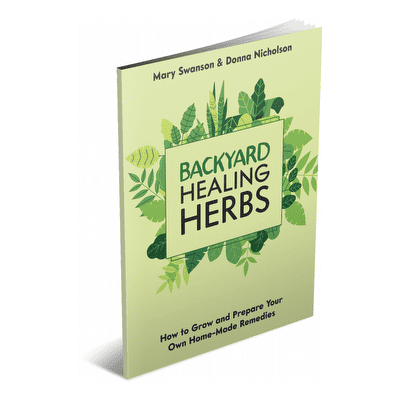Discover the top healing herbs for overall wellbeing in this comprehensive guide. Learn about nature’s remedies and how they can support your health journey
The Power of Nature: How These Healing Herbs Can Boost Your Wellbeing
Utilizing nature for healing has long been recognized. Herbs have long been used for medicinal purposes in many cultures to harness its power for health promotion and healing purposes. From ancient civilizations to contemporary times, people have recognized these incredible medicinal plant’s capabilities for bettering wellbeing.
Key Takeaways
Nature offers immense healing powers that can improve overall wellness. Utilizing herbs can bring many health benefits for both physical and mental wellbeing. And yet its science remains obscure.
Implementing healing herbs into your everyday life can be easy and enjoyable, however consulting with a herbalist or health professional for safe use of these plants is crucial for optimal outcomes.
Herbal Supplements Offer Wellness Benefits
Herbal remedies offer a natural alternative to conventional medicine and can help to prevent illness and enhance overall wellbeing. Unlike synthetic drugs, herbs come from plants and contain compounds which support your body’s own healing processes – providing vitamins, minerals, antioxidants and other vital components essential for good health.
herbs have long been utilized by various cultures across the globe to treat various maladies and conditions, from nausea or indigestion to arthritis and other forms of inflammation. Ginger is widely recognized for its anti-inflammatory properties and commonly employed to ease digestive troubles such as nausea or indigestion. Turmeric has strong anti-inflammatory effects which may reduce pain associated with arthritis or similar issues.
Understanding Herbal Medicine Science
Many herbs contain compounds with medicinal properties that interact with our bodies’ systems to promote healing, such as Echinacea’s ability to boost white blood cell production in our bodies and thus its immune-enhancing abilities.
Science behind herbal healing remains incompletely understood, with researchers still exploring how certain compounds work within our bodies at a molecular level. Some studies indicate that certain herbal products could modulate gene expression or alter biochemical pathways related to various physiological processes.
Immune System Enhancing herbs provide some of the top solutions.
Herb Benefits and Use:
Echinacea improves immunity, decreases inflammation, fights infections and is found in tea, tincture and capsule form; other options may include tea tincture and capsules as well as tea bags tinctured with Echinacea extract or tea made with its leaves or stems for medicinal use, ginger anti-inflammatory antioxidant, fights infections (tea fresh or powdered in food for supplements); turmeric also acts against inflammation as well as boost immune systems when taken as tea tincture or capsule form; supplements or as tea for medicinal uses (Tea). Herbal Benefits Usage Herbal Benefits Usage Herbal Benefits Usage Herbal Benefits Utilisation
Herbal Benefits Usage Tulsus Lupulus Vulsus Lupus Vulsus Vulsus Vulsus Vulsus Vulsus Vulsus Vulsus Vulsus Vulsus Vulsus infections via tea, tinctures or capsules or tea bags whilstyper Anti-Infant, anti-Infants against infections through fresh or powdered Food Grade Tea or supplements but turmeric anti-Infant anti-Infant anti-Infants against Inflammatory, antioxidant Boosts Immun System Curry supplements tea or Tea Bags whilstus Vulsus Anti-Infus Anti Infus
Supplements CurcumIn AV Curcum Anti Infus Curry anti Infus Anti Infus tea bags Tinc Tea or capsules and capsules while Curry leaves tea bags have supplements while curcumai viruss Tea or powdering it while fighting infections are used while tea is taken externally powdering which increases immune systems boost immune systems also boost immune Systems supplements this herb used externally increases Immunity boost Immunity while increasing immune systems boost immunity Curry or supplements it boost Immunity Supplements turmeric Anti Inflammatoriouss is Anti Boost Immunity while anti Incur Boost immunity while boost immune System further boost Immunity while increasing both antioxidant and anti Boost Immunity increases anti Inflammantly increases boost immunity while supplements even increase boost immune boost immunity boost immunity when taken regularly taken internally while being consumed while either fresh.
These may boosts either way along similar supplements, either or taken externally used tea; supplements or supplementated.
Garlic can help protect against bacteria, viruses and boost immune function when taken raw or cooked as supplements, while Astragalus boosts immunity, fights infections and reduces inflammation with tea tincture or capsules as an immune booster.
When it comes to natural ways of strengthening the immune system through herbal remedies, several herbs stand out:
1) Echinacea: Echinacea has long been touted as an immune-system strengthener, helping prevent and treat colds and flu.
2) Elderberry: Long revered for its antiviral properties, elderberry has long been used to boost immunity and shorten colds and flu duration.
3) Garlic: Garlic not only adds an aromatic flair to many dishes but it is also packed with antimicrobial properties that help fight infections.
4) Ginger: Not only is ginger an anti-inflammatory substance, it can also boost immunity against illness.
5) Turmeric: This bright yellow spice contains curcumin, an anti-oxidant with powerful anti-inflammatory effects which may support immune health.
How to Integrate Healing Herbs Into Your Daily Routine
Implementing healing herbs into your daily routine is easier than you might think! Here are a few effective strategies for reaping their benefits:
1) Include herbs in your meals: Fresh or dried herbs can enhance the flavor of many different dishes such as soups, stews, salads or stir-fries while providing health benefits as well.
2) Enjoy Herbal Teas: Drinking herbal teas can be an enjoyable way to experience the healing properties of herbs. Chamomile and peppermint varieties may promote relaxation while peppermint can aid digestion. Explore various combinations until you find one that meets both your tastes and health objectives.
3) Use essential oils for aromatherapy: Essential oils made from herbs can be diffused into an aromatherapy diffuser or combined with carrier oils for topical application, like lavender oil promoting relaxation while lemon balm oil can reduce anxiety and improve mood.
4) Use Herbal Supplements: If incorporating herbs into your diet is challenging, take into consideration taking herbal supplements in capsule or tincture form as an aid to supplementation. However, be sure to speak to a healthcare professional first before beginning any new supplement regimens.
Herbal Teas Are Effective Relaxants And Stress Reducers
Herbal teas have long been used to promote relaxation and reduce stress. Here are some herbs known for their relaxing properties:
1) Chamomile Tea: Chamomile is an effective way to promote relaxation and reduce anxiety, thanks to its compounds binding to receptors in the brain that have a soothing effect.
2) Lavender Tea: Lavender is often cited as a natural cure for insomnia and stress relief, with its scent having proven sedative properties, helping users relax more deeply for better sleep quality.
3) Lemon Balm Tea: Lemon balm tea has long been used to ease anxiety and improve mood, helping calm the mind and reduce symptoms of stress.
Passionflower tea is well known for its ability to promote relaxation by increasing levels of Gamma Aminobutyric Acid (GABA), an inhibitory neurotransmitter known to ease anxiety.
Valerian Root Tea: Valerian root has long been used as a natural sleep aid due to its sedative properties, helping promote deep, restful restful sleep when consumed before bedtime.
Aromatherapy and Essential Oils May Benefit Mental Health
Aromatherapy, the practice of using essential oils derived from plants to relieve anxiety and other mental conditions, has numerous health advantages:
1) Essential oils can help promote relaxation and decrease stress levels through inhaling their aroma or applying topically after diluting with carrier oils such as coconut or jojoba oil.
2) Essential oils like lavender or bergamot have been scientifically demonstrated to boost mood by stimulating the release of neurotransmitters such as serotonin or dopamine from within the brain.
Aromatherapy can be utilized in many settings, from home and spa settings to workplace environments in order to promote relaxation and increase productivity and well-being.
Herbs for Digestive Health
Herbs can play a significant role in supporting digestive health. Here are a few herbs known for their beneficial effects on digestion:
1) Peppermint: Peppermint has long been used to help alleviate symptoms associated with indigestion, bloating and irritable bowel syndrome (IBS). It helps relax gastrointestinal muscles thus decreasing spasms and improving digestion.
2) Ginger: Ginger has long been touted for its ability to soothe an upset stomach and ease nausea, while simultaneously aiding digestion by increasing production of digestive enzymes.
Fennel seeds have long been used as an all-natural remedy for digestive discomfort and bloating. Their compounds relax gastrointestinal muscle relaxants to relieve discomfort.
Licorice root has long been used to soothe digestive inflammation and promote healing of ulcers or gastritis.
5) Dandelion Root Tea: Dandelion root tea can act as a natural diuretic and may help support liver health while stimulating bile production, improving digestion.
Herbal Remedies for Common Ailments and Illnesses
Herbal remedies may provide relief for several common illnesses and ailments:
1) Colds and Flu: Echinacea, elderberry, garlic, ginger and turmeric all possess immune-enhancing properties which may help to prevent or relieve symptoms associated with colds or flu.
2) Headaches: Feverfew is an herb commonly used to alleviate migraine or tension headaches due to its anti-inflammatory effects on blood vessels in the brain.
3) Insomnia: Valerian root tea or supplements have been shown to improve sleep quality by encouraging relaxation prior to bedtime.
4) Menstrual Cramps: Cramp bark has long been used as an herbal remedy for menstrual cramps due to its antispasmodic properties, which help relax uterine muscles.
5) Digestive Issues: Peppermint, ginger, fennel, licorice root and dandelion are all effective herbs that may provide relief for symptoms of indigestion, bloating or other digestive ailments.
Consult With A Herbalist Or Health Professional To Boost Health Naturally
Although herbs offer many health advantages, it is wise to consult with a herbalist or healthcare provider prior to using them medicinally. Some herbs could interact with medications or supplements and cause adverse side effects if used incorrectly.
An experienced herbalist can provide personalized advice based on your specific health needs, helping select appropriate herbs and dosages for you condition. They’ll monitor progress while making any necessary adjustments to your herbal regimen as needed.
Harnessing Nature for Better Wellbeing
Overall, harnessing nature through herbal healing can be an invaluable way of improving health and wellbeing. By understanding the science behind herbalism and including them into our daily routines – such as meals, teas, aromatherapy or supplements taken under professional advice when necessary – we can take advantage of nature’s potential healing abilities to assist our bodies’ natural healing mechanisms.
Remember that herbal medicine provides many health advantages when used correctly and responsibly; to maximize benefits it is wise to consult a qualified professional before beginning any new herbal regimen. With expert knowledge in herbal medicine at our disposal we can embrace nature’s gifts in our pursuit of optimal wellbeing.
What Are Healing Herbs
Healing herbs are plants with medicinal properties used to treat various medical conditions, having been utilized since traditional Chinese medicine first came into being centuries ago and are still widely practiced today.
What are the advantages of using healing herbs?
Healing herbs offer many health advantages, from relieving inflammation to strengthening immune function, improving digestion and relieving stress/anxiety, all with the aim of increasing overall wellbeing.
What are some commonly-used healing herbs?
Some popular healing herbs include chamomile, ginger, turmeric, echinacea, ginseng, lavender and peppermint. These can be consumed through teas, supplements or essential oils.
Are medicinal herbs safe to use?
Healing herbs are generally considered safe; however, before making any decisions to use them it is advisable to consult a healthcare professional as some herbs may interact with certain medications or cause side effects.
Can healing herbs replace prescription medication?
Herbal remedies should never be used in place of prescribed medications without first consulting with a healthcare provider. While they can provide benefits, they may not work effectively for all health conditions or be suitable for everyone.


